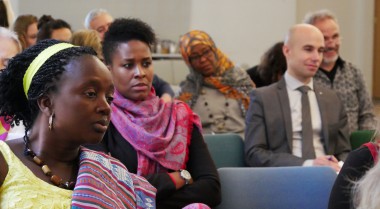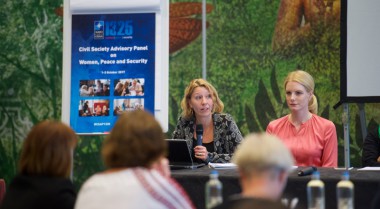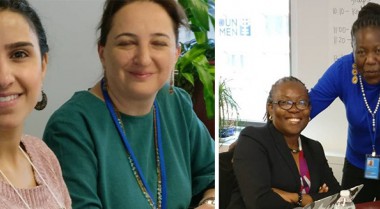
The Leaders of Today: The 63rd Commission on the Status of Women
When women are empowered, societies are safer, more resilient, and more prosperous. Recognising and acting upon the idea that gender equality is not a women’s issue but a global issue, is at the heart of the Commission on the Status of Women.
Bringing the Local to the Global
Every March, the Commission on the Status of Women – the main UN body focused on promoting gender equality and the empowerment of women - holds its annual two-week session. This is a time for UN agencies, UN Member states, and civil society to convene at UN headquarters to discuss and shape global standards on gender equality, review progress and setbacks in implementing the Beijing Declaration and Platform for Action, as well as to bring local voices and stories into the international spotlight.
This year, the 63rd session of the Commission on the Status of Women took place from March 11th to the 22nd. The priority theme was “Social protection systems, access to public services and sustainable infrastructure for gender equality and the empowerment of women and girls.” The broadness of the theme allowed for side events to cover diverse topics and intersect with other agendas such as climate change, the 2030 Agenda and Sustainable Development Goals, and youth, peace, and security.
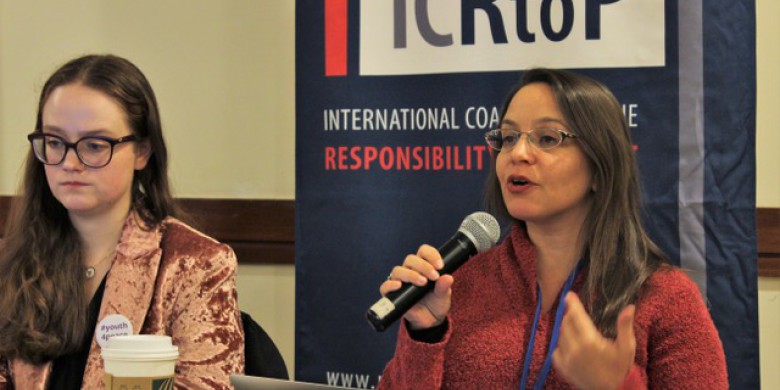
Social Protection and Conflict Prevention go Hand in Hand
For GPPAC, the priority theme directly relates to our work on conflict prevention. In partnership with the International Coalition for the Responsibility to Protect (ICR2P) and the Friedrich Ebert Stiftung Office (FES), under the Prevention Up Front Alliance, we hosted a side event, “Sustainable Infrastructure for Gender Equality: Putting Prevention Up Front.” This event provided an opportunity for experts to share their experiences on how social protection relates to conflict prevention, as well as recommendations for removing current barriers and accelerating progress for gender equality. The event was moderated by Sharon Bhagwan Rolls, the Chairperson of GPPAC’s Board and Gender Liaison to the GPPAC's International Steering Group.
The panel of experts were diverse both geographically and in experience and each offered a unique perspective on the intersection between conflict prevention and the empowerment of women.
"Women “need knowledge about the systems” in order to effectively advocate for themselves." - Shirine el-Jurdi
Adriana Erthal Abdenur, from the Igarapé Institute (Brazil), spoke about the rising tensions on the Venezuelan-Brazilian border and concerning trends towards social conservatism. In South America, there are no reliable regional institutional arrangements, leaving the burden on national frameworks. Unfortunately, NAPs are lacking in the region and so Abdenur is seeking to learn from partners in West Africa. She hopes to strengthen these regional partnerships – with countries like Ghana and Kenya who have strong NAPs on WPS -- in order to transfer experiences, expertise, and best practices for developing Brazil’s own National Action Plan.
Kesia-Onam Bijoue Birch, from the West Africa Network for Peacebuilding (WANEP) and Women in Peacebuilding (WIPNET) (Ghana), highlighted that for the past 18 years, the Economic Community of West African States (ECOWAS) and WANEP have partnered on an anonymous early warning system that allows individuals to report social and political concerns. The project exists both at the regional and state level but is driven by local and community engagement pointing out that it is not enough to collect information, but to link it with an informed response.
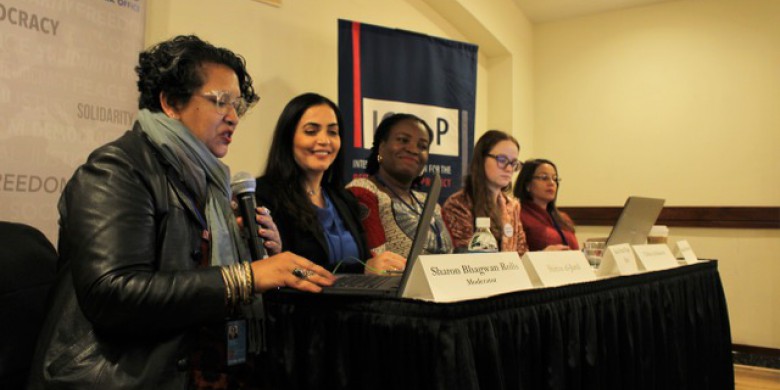
Shirine el-Jurdi, from the Women’s International League for Peace and Freedom (WILPF) and GPPAC (Lebanon), emphasized the need to understand the complex nature of conflict and, subsequently, the diverse needs of women in the MENA region. From occupation to displacement, from child labor to child marriage, women’s experiences and forms of restriction range throughout the region. According to el-Jurdi, women in the region, especially in conflict, do not have access international agreements, resolutions, and conventions that are vital tools for empowerment. Women “need knowledge about the systems” in order to effectively advocate for themselves.
As the youth representative on the panel, Eliška Jelínková, from the United Network of Young Peacebuilders (UNOY) (Czech Republic), called attention to the “violence of exclusion” as a root cause of increasing mistrust in governments and formal institutions among young people. The efforts of young people are seen as unprofessional and illegitimate which leads many to occupy informal spaces, operate on low budgets, and rely heavily on volunteer efforts. Regardless, engaging young people is necessary for preventing violence conflict pointing out
“young people, especially young women, are not the leaders of tomorrow, they are the leaders of today.”
Based on their experiences and fruitful dialogue, the panel also offered a set of recommendations. First, recognizing its influential role, they suggested that media can be utilised to bring visibility to women’s experiences in conflict and post-conflict areas as well as facilitate information sharing and collective advocacy. Furthermore, they raised the importance of ensuring these spaces, especially social media platforms, are regulated and do not become another place for exclusion and inequality. Second, young people, especially young women, need to be taken seriously – by donors, the UN, national governments, and other civil society organisations -- and provided the opportunity to be decision makers in peace processes. Third, social protection systems must be unconditional and accessible to not just to the privileged. Finally, with global trends towards isolationism and conservatism, social protections must be institutionalised into national and regional government systems to avoid reversals and regression of progress. Even progressive spaces like CSW have seen a growing presence of right-wing conservative agendas and must be protected as inclusive forums for diverse voices.

A Landmark Year, Looking Forward to 2020
2020 will mark five years into achieving the Sustainable Development Goals, the 20th anniversary of UN Security Council Resolution 1325, and the 25th anniversary of the Beijing Declaration and Platform for Action. The theme for the 64thsession of CSW will be a review of the implementation of the Beijing Platform and how gender equality can support the full realisation of the Sustainable Development Goals. Overall, 2020 will be a milestone to acknowledge progresses for the empowerment of women and girls. However, it also serves as a reminder, and hopefully a motivator, there is still a lot of work that needs to be done to fully achieve gender equality.
